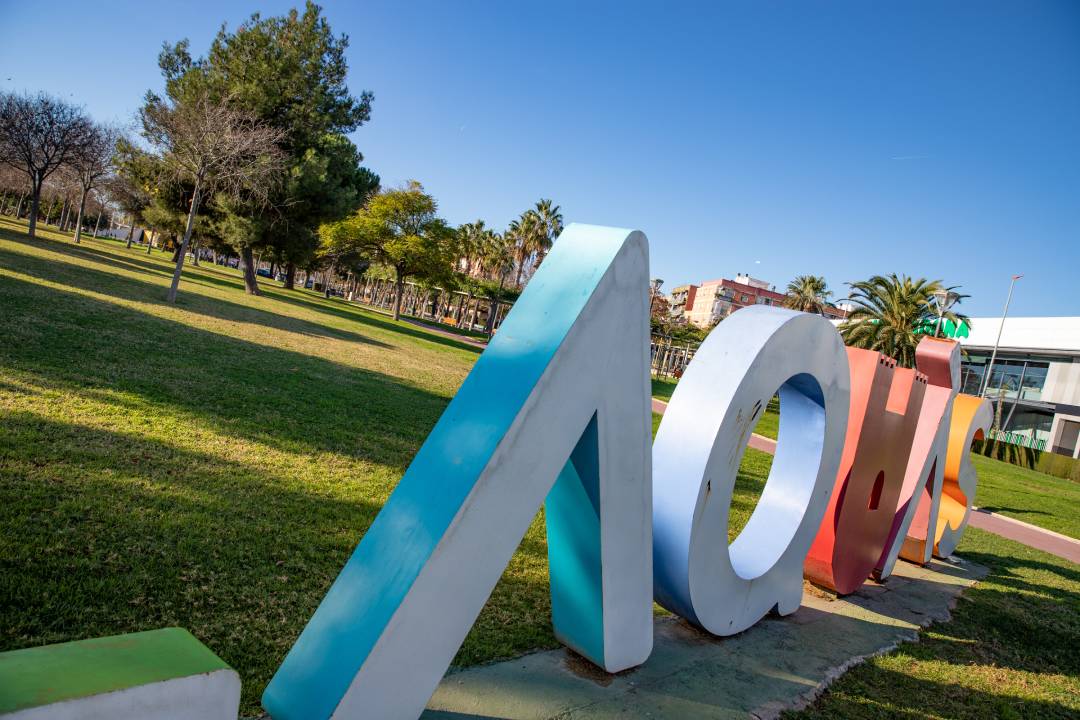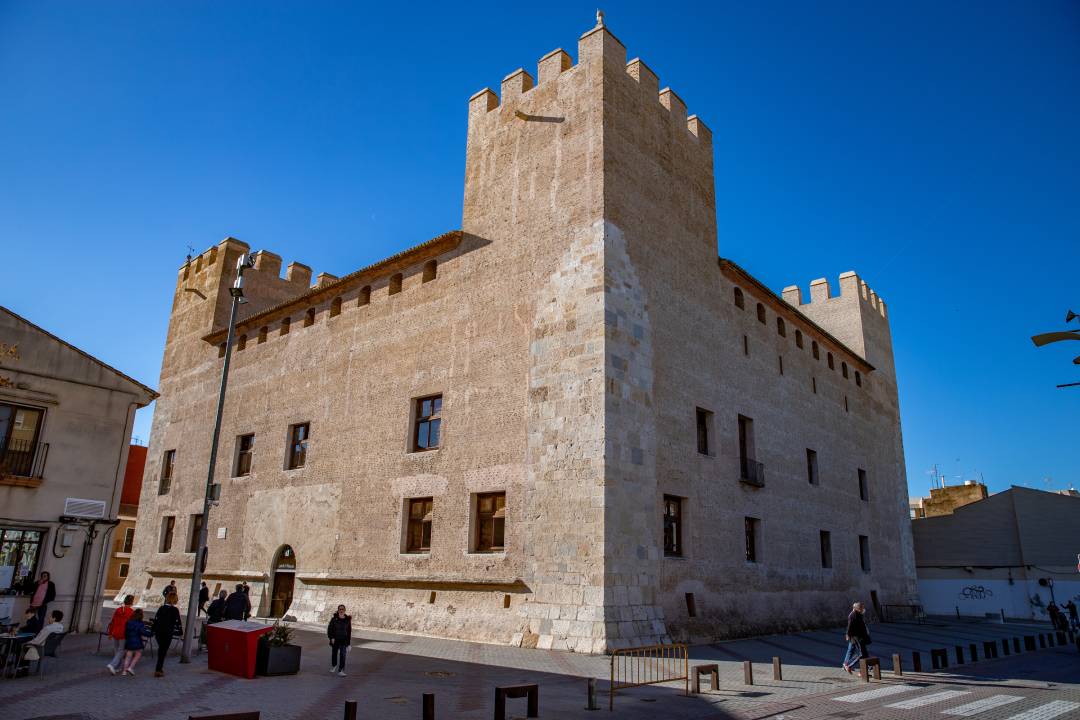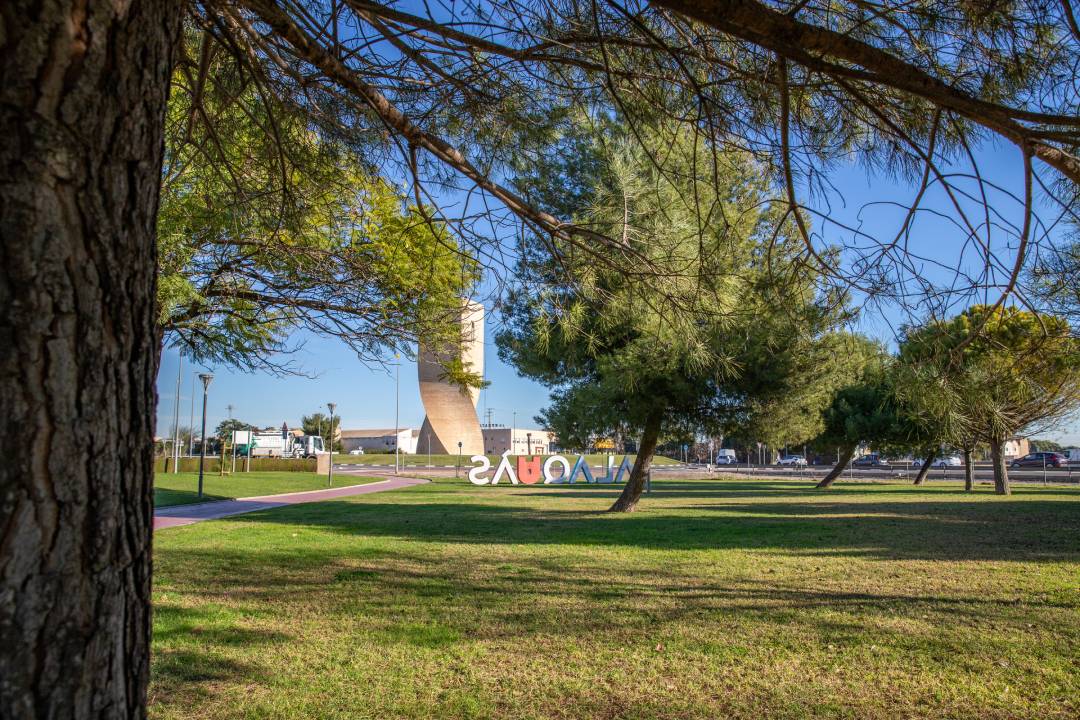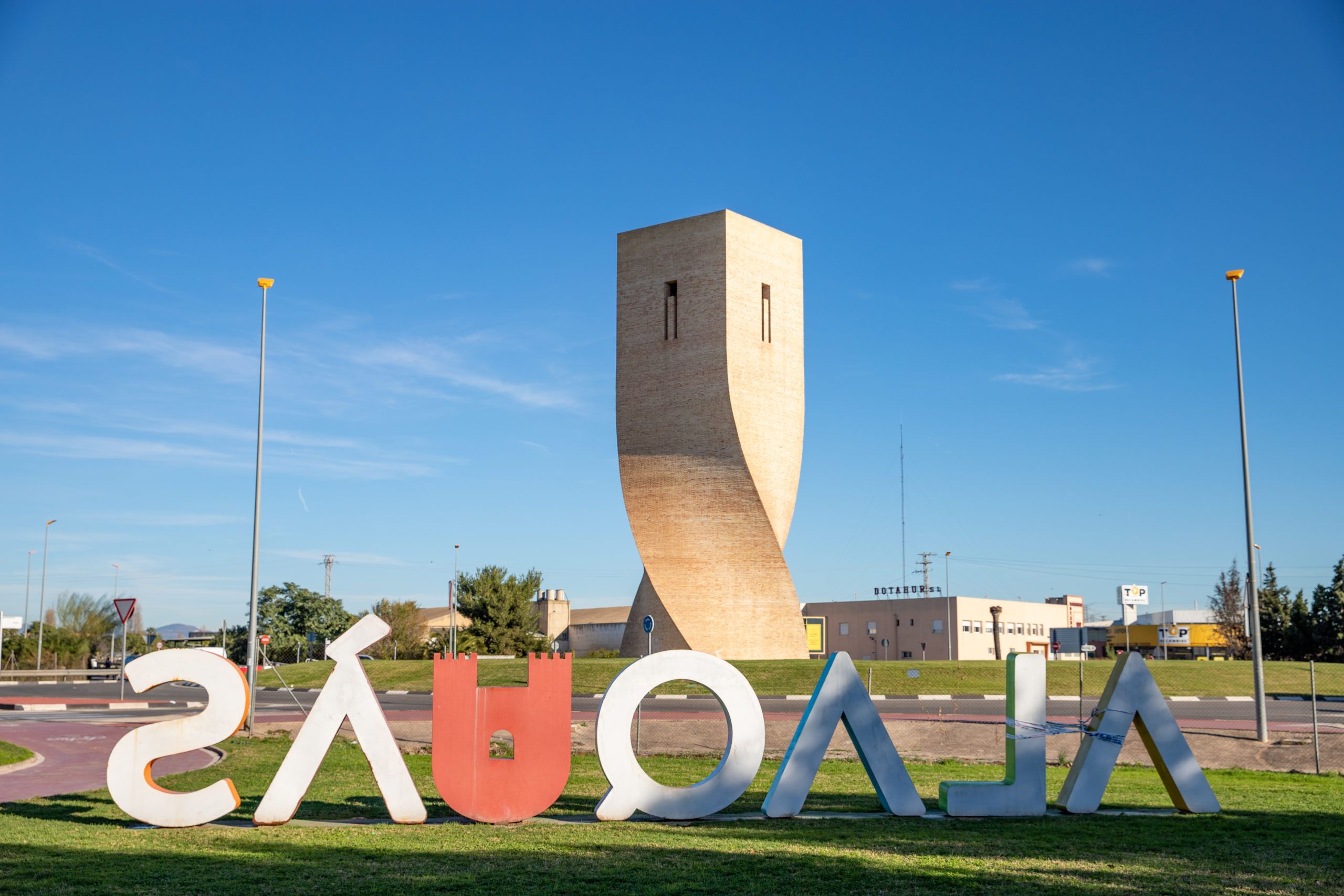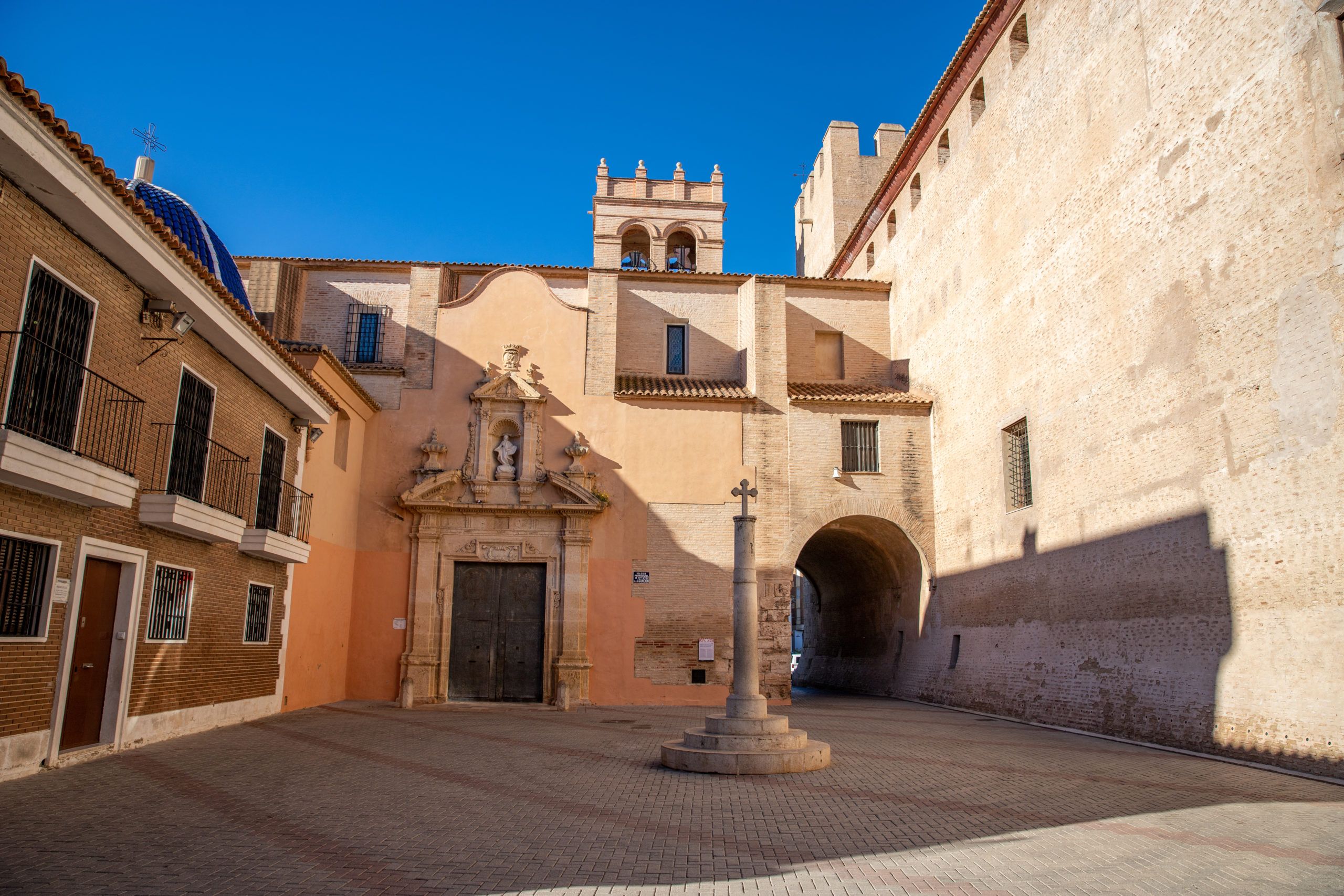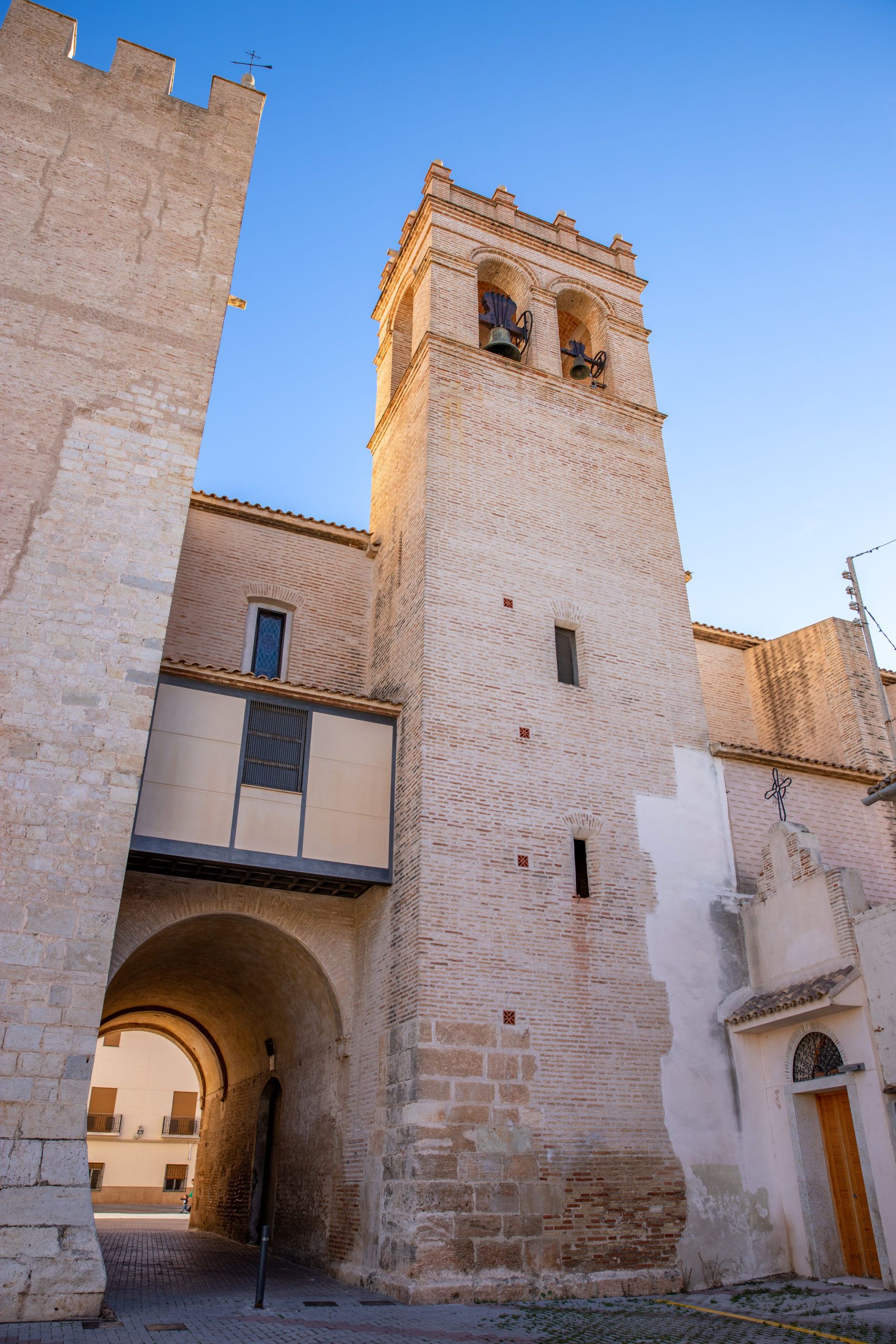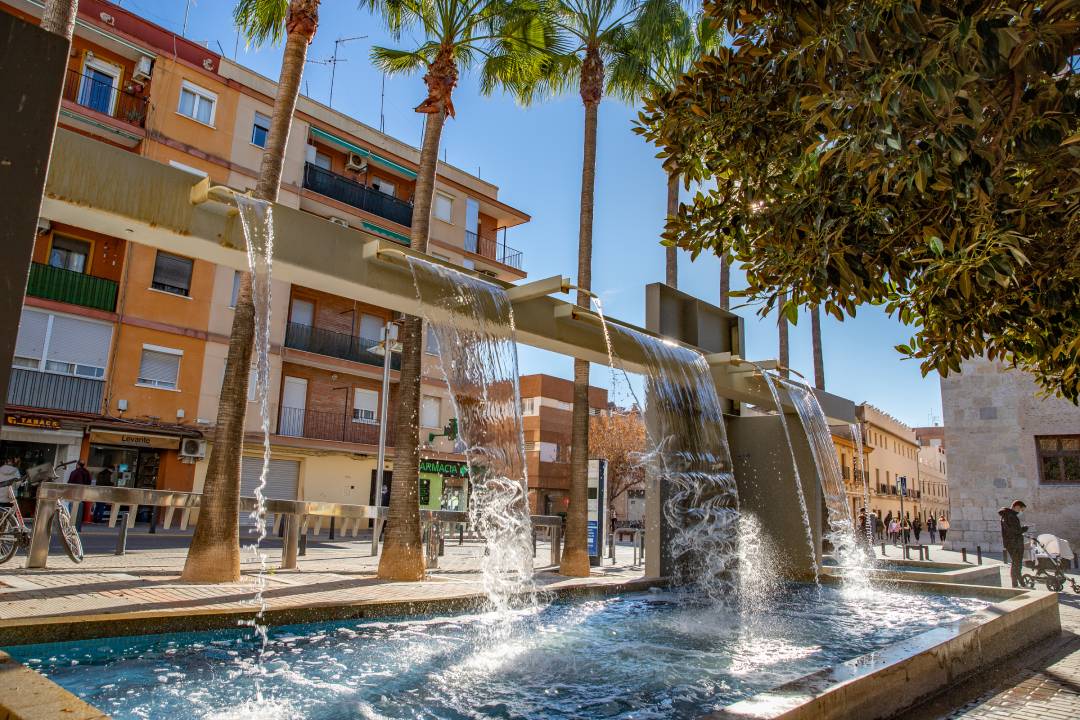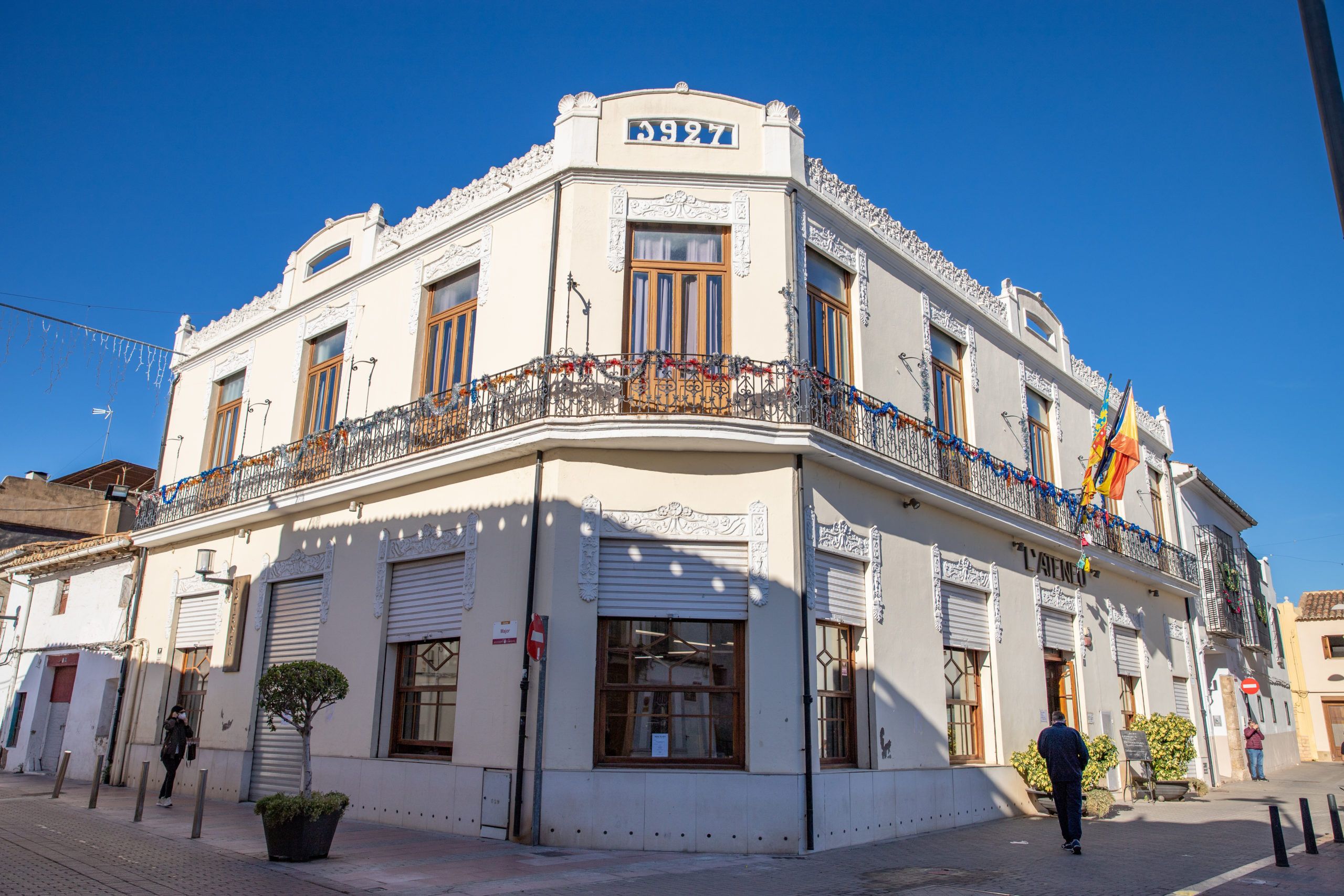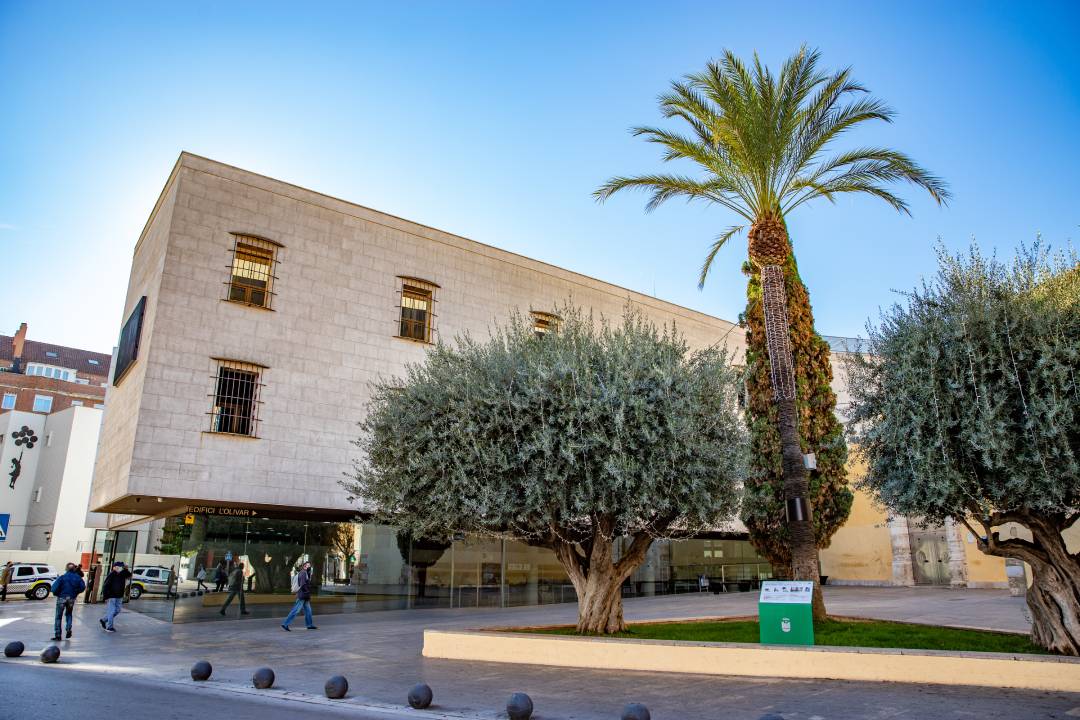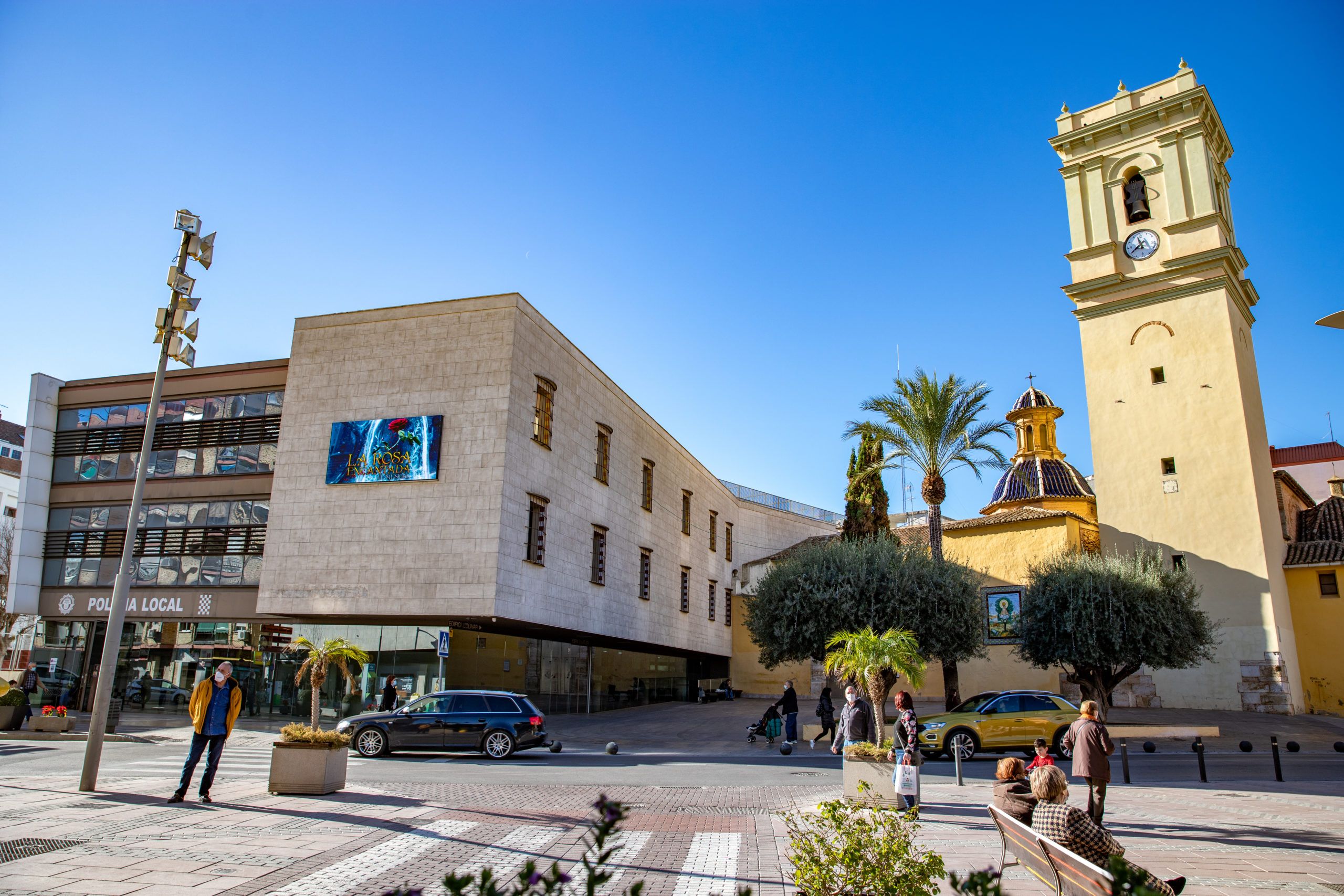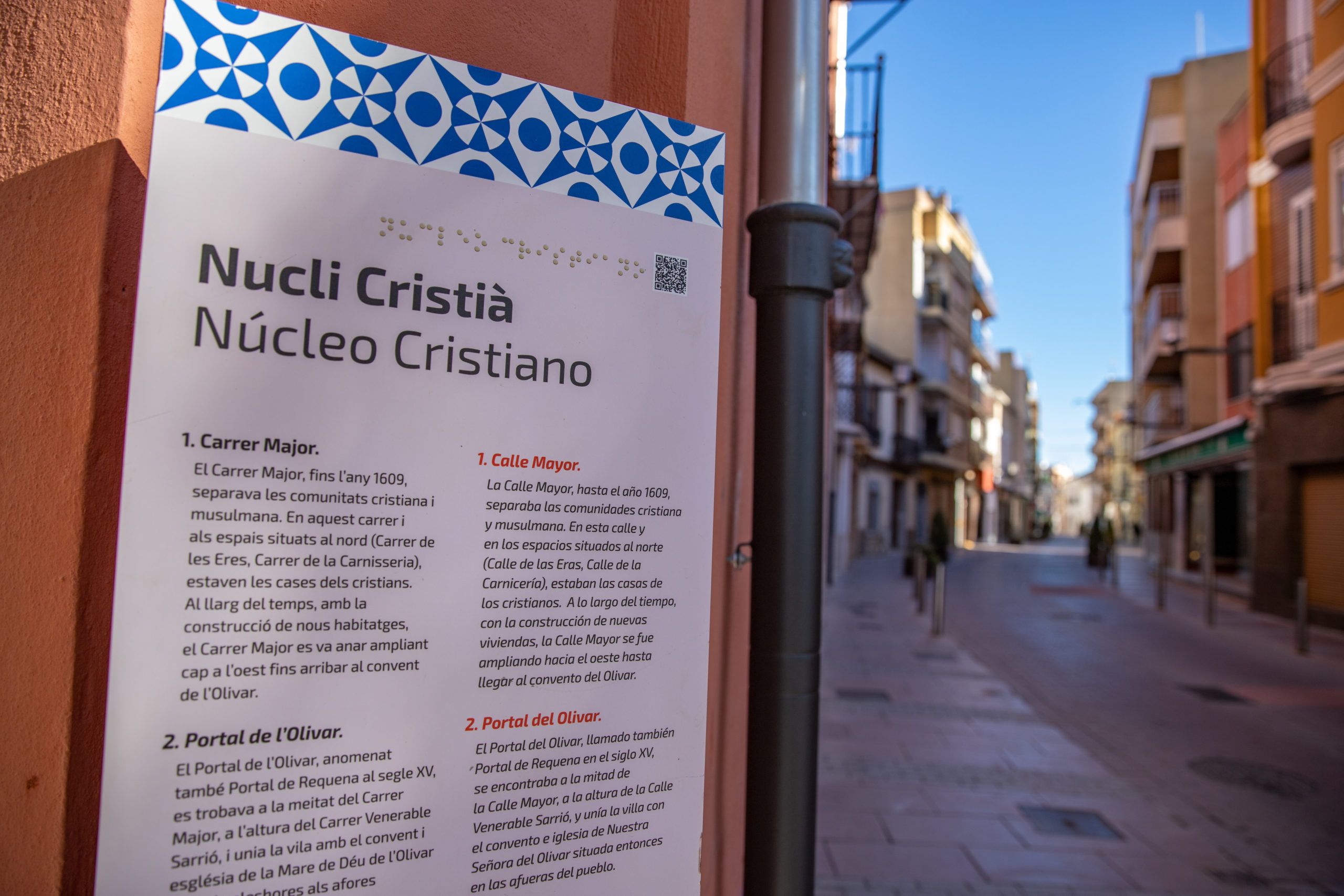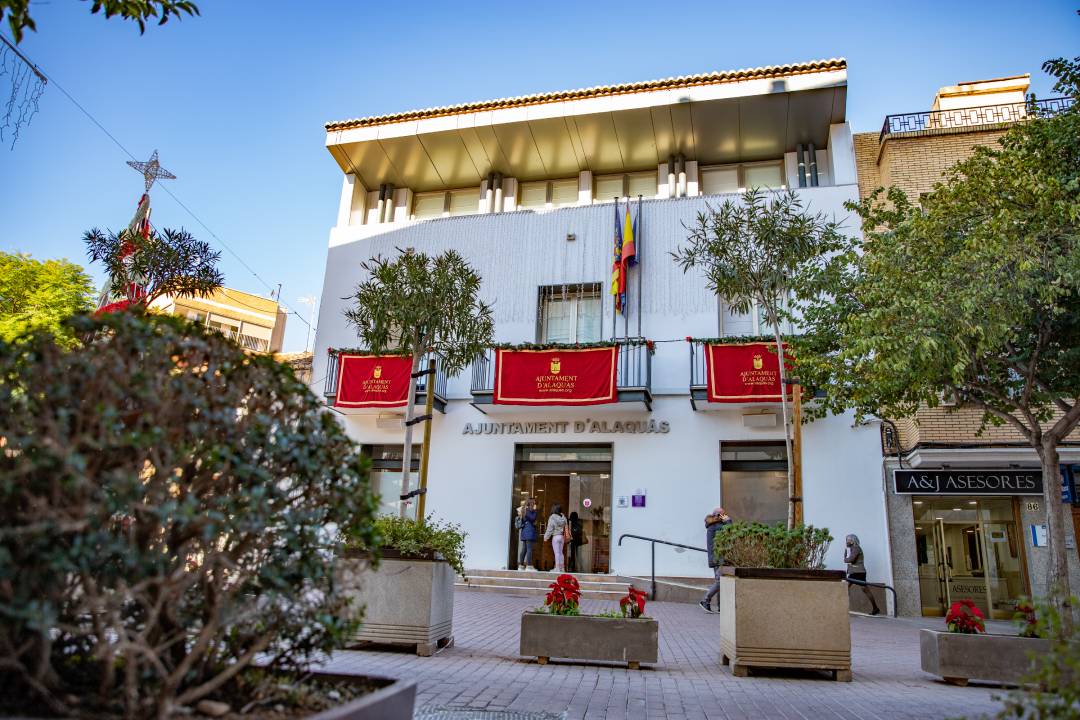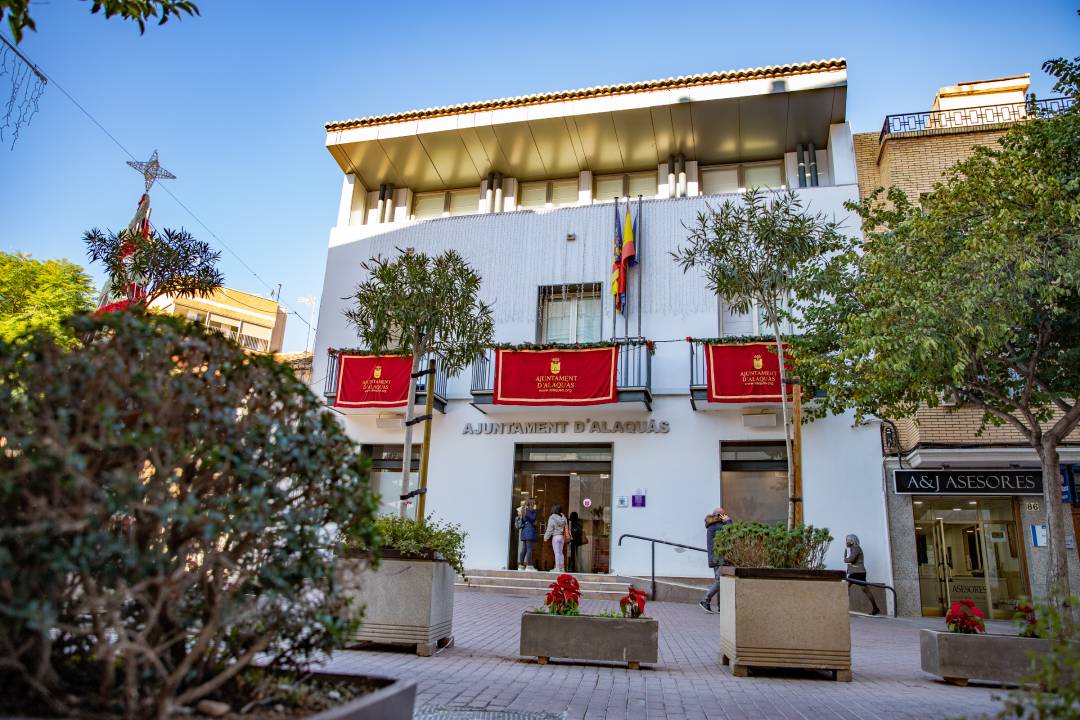Alaquàs
Located just 7 km from Valencia, Alaquás has approximately 28,000 inhabitants. The municipality is flat and almost completely developed. The local economy is based on construction and industry.
Gastronomy:
Alaquàs’ most typical dishes include a wide range of rices. Mention may be made of paella, “el arrós caldos” (rice with broth), “el arrós a banda” (rice with fish stock), “el arrós al forn” (baked rice) and meat stews. Another traditional delicacy can be found in the form of “cocas”, available in a range of varieties, such as tuna, vegetable, onion and, perhaps the best-known, “coca amb tonyina”.
Places of interest:
Church of the Assumption (1354), constructed following the Valencian religious architecture model; nave, chapels between buttresses, pentagonal apse and open gallery in the upper section, in the style of a “reconquest” church, 1694, faced with baroque ornaments. It has a connecting corridor that runs through a passage that leads to the choir window, where the stately home is located. The Church of Olivet belonged to the Minim Convent from 16th to 19th century. It was later acquired by the Oblate Sisters of the Most Holy Redeemer, and in 1973 it became parish. Alaquàs Castle – Palace, adjacent to the Church of the Assumption, constructed in 1582 by Luis Pardo de la Casta. It has 4 floors: ground floor, mezzanine, main floor and attic. Part of the old stately house was used for the construction of the current castle.
TOURIST INFORMATION TELEPHONE 961 519 400 (Town Hall.) Internet: www.alaquas.org
Festivities:
The town’s main festivities take place at the beginning of September. Celebrations are held in honour of the Assumption of Our Lady, Saint Michael’s Day, Our Lady of the Olive Grove (the patron saint of the municipality) and Christ of the Good Death. The various events include Moors and Christians celebrations, “bous al carrer” (bull-running), “el Cant de la Carxofa”, “Cordà” (the throwing of fireworks in the street), and the streets are filled with the traditional sounds of “tabalet i dolçaina” (drum and dulzina), as well as processions, musical wake-up calls, fireworks, etc. “Las Fallas” are held in March, and include the participation of 11 festivity committees and a series of awards. The “Fallas” monuments are burnt on the night of 19th, Saint Joseph’s Day, known as “la nit de la Cremà”.
